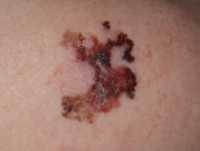MedicalResearch.com Interview with:
Yun Liu, PhD
Google Health
Palo Alto, California
MedicalResearch.com: What is the background for this study? Would you describe the system? Does it use dermatoscopic images?
Response: Dermatologic conditions are extremely common and a leading cause of morbidity worldwide. Due to limited access to dermatologists, patients often first seek help from non-specialists. However, non-specialists have been reported to have lower diagnostic accuracies compared to dermatologists, which may impact the quality of care.
In this study, we built upon prior work published in
Nature Medicine, where we developed a computer algorithm (a deep learning system, DLS) to interpret de-identified clinical images of skin conditions and associated medical history (such as whether the patient reported a history of psoriasis). These clinical images are taken using consumer-grade hardware such as point-and-shoot cameras and tablets, which we felt was a more accessible and widely-available device compared to dermatoscopes.
Given such images of the skin condition as input, the DLS outputs a differential diagnosis, which is a rank-ordered list of potential matching skin conditions. In this paper, we worked with user experience researchers to create an artificial intelligence (AI) tool based on this DLS. The tool was designed to provide clinicians with additional information per skin condition prediction, such as textual descriptions, similar-appearing conditions, and the typical clinical workup for the condition.
We then conducted a randomized study where 40 clinicians (20 primary care physicians, 20 nurse practitioners) reviewed over 1,000 cases -- with half the cases with the AI-based assistive tool, and half the cases without. For each case, the reference diagnosis was based on a panel of 3 dermatologists.
(more…)



 Professor Marie-Aleth Richard
EADV Communications Committee Chair
Professor, University Hospital of La Timone
Marseille, France
MedicalResearch.com: What is the background for this Roundtable event? Would you describe the mission of the European Commission’s Beating Cancer Plan?
Response: Europe’s Beating Cancer Plan is the first, comprehensive EU strategy on cancer, aimed at tackling the disease through all key stages: prevention; early detection; diagnosis and treatment; and quality of life of cancer patients and survivors. The Plan also aims to create opportunities to improve cancer care through research and innovative projects, such as artificial intelligence, and to promote equal access to knowledge and treatments in cancer care across Europe.
The EADV seeks to create a bridge between the EU health policy agenda and scientific research, by engaging with policymakers, patient organisations and other stakeholders to support a patient centric-approach; tackling melanoma and non-melanoma skin cancers (NMSC) at all stages of the pathway, from prevention to follow-up care.
Through our Roundtable event, the EADV brought together these key stakeholders to evaluate the effectiveness of the EBCP on preventing both melanoma and NMSC, as well as identify joint recommendations that step-up measures towards this goal.
Professor Marie-Aleth Richard
EADV Communications Committee Chair
Professor, University Hospital of La Timone
Marseille, France
MedicalResearch.com: What is the background for this Roundtable event? Would you describe the mission of the European Commission’s Beating Cancer Plan?
Response: Europe’s Beating Cancer Plan is the first, comprehensive EU strategy on cancer, aimed at tackling the disease through all key stages: prevention; early detection; diagnosis and treatment; and quality of life of cancer patients and survivors. The Plan also aims to create opportunities to improve cancer care through research and innovative projects, such as artificial intelligence, and to promote equal access to knowledge and treatments in cancer care across Europe.
The EADV seeks to create a bridge between the EU health policy agenda and scientific research, by engaging with policymakers, patient organisations and other stakeholders to support a patient centric-approach; tackling melanoma and non-melanoma skin cancers (NMSC) at all stages of the pathway, from prevention to follow-up care.
Through our Roundtable event, the EADV brought together these key stakeholders to evaluate the effectiveness of the EBCP on preventing both melanoma and NMSC, as well as identify joint recommendations that step-up measures towards this goal. 


























